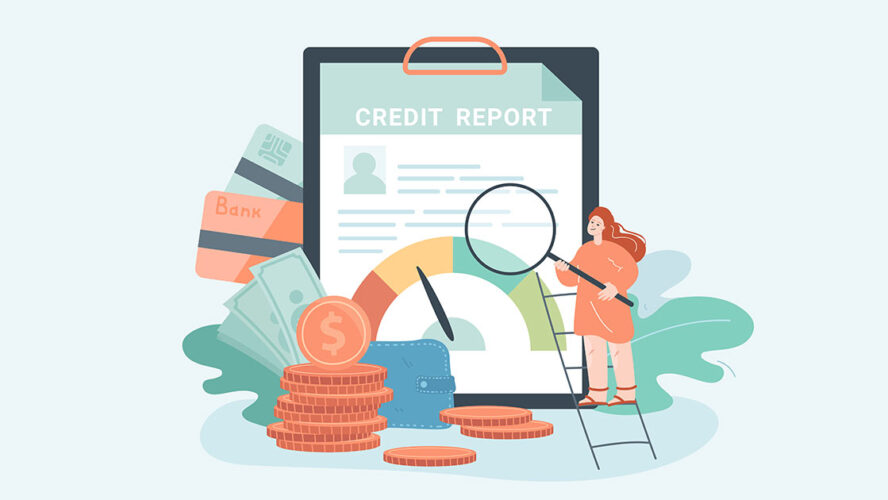Since the dawn of credit reporting, renters have felt they should get recognition for making prompt rent payments. They received positive points for making car payments as agreed. Why not get the same for paying their rent on time?
For example, a tenant paying $2,000 a month for 20 years would pay $48,000 in rent with nothing to show for it on their credit report. However, if they or their landlord participated in rent reporting, their credit score could certainly benefit.
The more positive creditor accounts in a person’s credit history, the higher their score. The higher their score, the more financial advantages, such as lower interest rates on loans and higher limits on credit cards. It would also be easier to lease a home.
Until recently, homeowners were able to see their mortgage payments positively affect their credit scores, while most renters saw no benefit to their credit scores for making timely rent payments. However, recent advancements in fintech have made it possible for renters and landlords to report on-time (and potentially delinquent) payments to the three major credit bureaus.
Why credit reporting is important
Many renters are “credit invisible” or struggling to rebuild credit due to past mistakes. Some, like young renters or those new to the United States, are simply struggling to establish credit in the first place. One of the easiest ways to help residents build credit is to have their rent payments reported to the three major credit bureaus.
A study by the Credit Builders Alliance and Citi Foundation found that 79% of participants saw their credit scores increase with positive rent reporting, with an average rise of 23 points.
Poor credit can present challenges even if a person doesn’t want to borrow money and simply seeks housing. “The biggest barrier to moving into private housing is not that people can’t save enough money for the deposit,” says Dara Duguay, CEO of Credit Builders Alliance. “The issue is that they may not be able to pass the tenant screening that nearly all private apartment complexes require. If you’re credit invisible, you either won’t pass the tenant screening, or you may end up paying more for a security deposit.”
According to a TransUnion study, 73% of renters are inclined to pay rent on time when their rent payments are reported. Unfortunately, most property owners and renters are not currently participating in a rent reporting program. It is estimated that less than 5% of renters have their rent payments included in their credit files.
This is likely because rent reporting has only recently become widely accessible. Until a few years ago, these services were mostly limited to large property management companies. However, recently, there’s been a surge in new rent reporting companies that work with housing providers of all sizes, and some even work directly with renters. However, few renters realize that self-reporting is even an option, or they may mistakenly believe their rent payments are being reported by their housing provider when they are not.
Governments encourage rent reporting
Luckily, things are looking up for tenants. In 2022, Fannie Mae and Freddie Mac began providing free or substantially discounted rent reporting services to landlords of their multifamily properties to entice them to offer the options to tenants. For example, Fannie Mae’s Positive Rent Payment pilot connects property owners of Fannie Mae-financed buildings with fintech providers that can report the positive rent payments of their residents directly to credit bureaus.
Last year, California passed AB 2747, a California rent law designed to make rent reporting more accessible, helping renters build credit while setting clear guidelines for landlords. Under AB 2747, landlords with more than 15 rental units or an LLC or corporation must offer tenants the option to have their on-time rent payments reported to a credit bureau.
Although most states allow negative reporting, the California law only references positive reporting, which has left negative payment reporting up to interpretation. Regardless, landlords can still report debt as a collection.
California landlords must:
- Charge no more than $10/month for reporting rent payments.
- Report on-time rent payments monthly to at least one credit bureau.
- Disclose to tenants that their rent payments will be reported.
- Tenants must be provided with the option to opt in or opt out of reporting.
In January 2025, Rochester, NY, Mayor Malik Evans launched a new program to help renters establish or improve their credit scores through positive-only rent reporting. That means that late payments will not hurt credit, but on-time payments can help build credit. Under the program, participating city landlords would submit reports to credit bureaus on on-time payments from renters.
Similar programs have been initiated in Buffalo, New York City, and even the Allegany Indian Reservation.
Rent reporting is the future
It’s every housing provider’s dream to keep good tenants for as long as possible. The ability to improve credit simply by paying rent gives tenants a reason to stay longer at a property.
More municipalities will certainly follow with voluntary or mandatory rent reporting measures, so landlords should be prepared by adopting it before it is legally required. It can be a great marketing tool and a way to encourage tenants to pay their rent on time. In addition, with nearly all evictions and judgments removed from credit reports in 2017 under the National Consumer Assistance Plan, rent payment history adds needed transparency to credit reports.
By embracing rent reporting now, landlords can strengthen tenant relationships while helping to build a more accurate and inclusive credit system.

